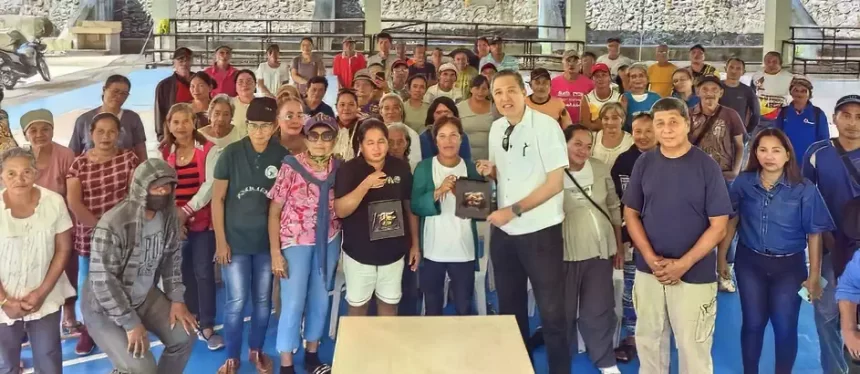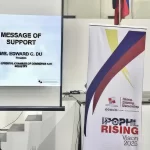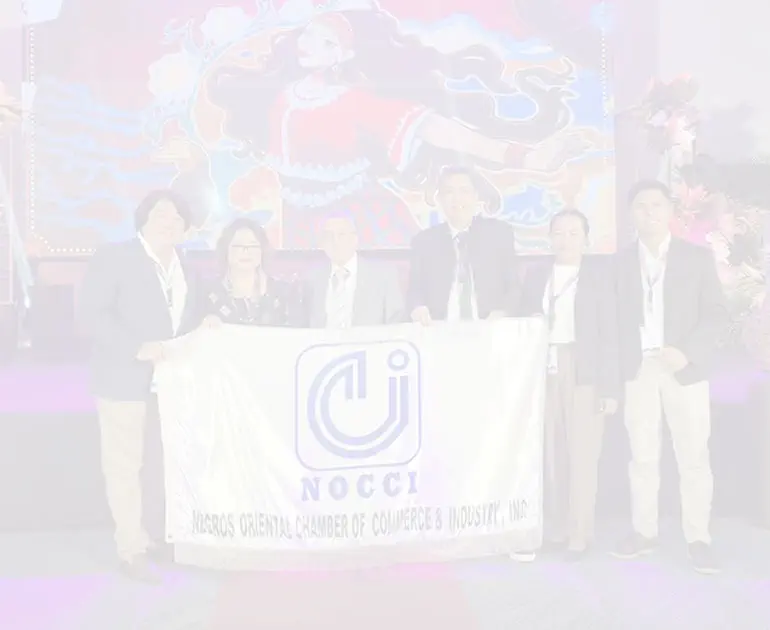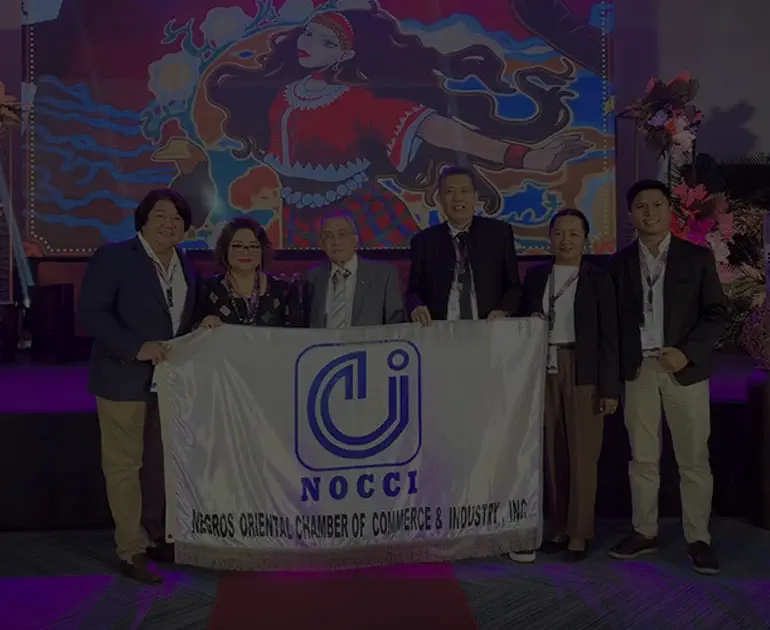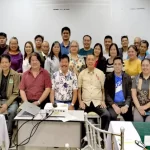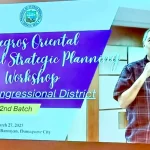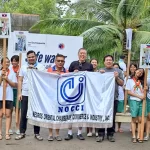NOCCI President Edward Du was Keynote Speaker during a meeting with the 220 Malaunay Agrarian reform beneficiaries and CLOA holders. The purpose of the meeting was to discuss and garner support for the PRDP World Bank-funded Cacao processing project, a partnership between Department Agrarian Reform (DAR), Provincial Agrarian Reform Coordinating Committee (PARCCOM), and NOCCI’s Save Mt. Talinis Advocacy Program through its Mt. Talinis Dark Chocolate Livelihood Project.
NOCCI Leads Dialogue on PRDP World Bank-Funded Cacao Processing Project
The Negros Oriental Chamber of Commerce and Industry (NOCCI), under the leadership of President Edward Du, continues its advocacy for sustainable livelihoods through the Save Mt. Talinis Advocacy Program. On December 10, 2024, President Du served as the keynote speaker at a pivotal meeting with 220 Malaunay agrarian reform beneficiaries and Certificate of Land Ownership Award (CLOA) holders.
The meeting focused on building support for the Provincial Development Program (PRDP) World Bank-funded cacao processing initiative. This project is a collaboration between the Department of Agrarian Reform (DAR), the Provincial Agrarian Reform Coordinating Committee (PARCCOM), and NOCCI’s Mt. Talinis Dark Chocolate Livelihood Project.
A Transformative Initiative for Agrarian Reform Beneficiaries
The cacao processing project represents a significant step toward enhancing the economic prospects of agrarian reform beneficiaries. It aims to empower farmers by providing them with the tools and resources needed to grow high-quality cacao and transform it into premium products, such as the Mt. Talinis Dark Chocolate, which is already gaining recognition for its sustainable production and exquisite taste.
Edward Du highlighted the transformative potential of this initiative, stating, “This project is more than just livelihood support; it is about creating a sustainable ecosystem where agrarian reform beneficiaries can thrive, not just as farmers but as entrepreneurs.”
The meeting addressed the beneficiaries’ concerns, outlined the project’s benefits, and encouraged collective commitment to its successful implementation.
Collaboration Across Sectors
The success of the cacao processing project is deeply rooted in the collaboration between government agencies, local organizations, and the agrarian community.
- Department of Agrarian Reform (DAR): Provides technical assistance, capacity building, and access to funding for agrarian beneficiaries.
- PARCCOM: Coordinates the stakeholders and ensures the alignment of the initiative with agrarian reform goals.
- NOCCI’s Save Mt. Talinis Advocacy Program: Serves as the private sector partner, spearheading the project’s sustainability and market development aspects.
This multi-stakeholder approach ensures the initiative not only addresses economic needs but also contributes to environmental conservation and community resilience.
The Role of Mt. Talinis Dark Chocolate Livelihood Project
As a flagship program of NOCCI’s Save Mt. Talinis Advocacy, the Mt. Talinis Dark Chocolate Livelihood Project is at the forefront of promoting sustainable cacao farming. By leveraging Negros Oriental’s fertile lands and ideal climate, the program aims to produce premium-grade cacao while preserving the region’s rich biodiversity.
The project emphasizes:
- Training and Capacity Building: Equipping farmers with skills in cacao cultivation and processing.
- Sustainable Practices: Encouraging organic farming methods that protect the environment.
- Market Access: Providing a platform for farmers to sell their products under the Mt. Talinis brand.
- Community Empowerment: Fostering a sense of ownership and pride among farmers.
By integrating agrarian reform beneficiaries into the cacao value chain, the project creates a pathway for inclusive economic growth.
Challenges and Opportunities
While the cacao processing initiative holds immense promise, it also comes with challenges that require collaborative solutions:
- Infrastructure Needs: Investment in facilities and equipment for cacao processing is critical.
- Training Gaps: Continuous education on best practices in farming and business management is necessary.
- Market Penetration: Establishing the Mt. Talinis Dark Chocolate as a competitive global brand requires strategic marketing and partnerships.
Despite these challenges, the project’s potential to uplift agrarian reform beneficiaries is undeniable. The cacao sector’s global demand, combined with Negros Oriental’s natural advantages, positions the region for success.
A Call to Action for Agrarian Communities
President Du called on the 220 agrarian reform beneficiaries to embrace the opportunity and work collaboratively to ensure the project’s success. He emphasized that their active participation is vital in achieving sustainable livelihoods and elevating the region’s cacao industry.
“This project is an investment in your future,” Du stated. “It is an opportunity to move beyond subsistence farming and become key players in a global industry. Together, we can build a legacy of sustainability and prosperity for the next generation.”
The Broader Impact
Beyond individual beneficiaries, the cacao processing initiative has far-reaching implications for Negros Oriental:
- Economic Growth: Strengthening the agricultural sector and creating new income streams.
- Environmental Conservation: Promoting sustainable farming practices that protect Mt. Talinis and its surrounding ecosystems.
- Cultural Identity: Establishing Negros Oriental as a hub for premium chocolate production enhances the region’s brand and pride.
Forward Focus
The PRDP World Bank-funded cacao processing project represents a unique opportunity to harness the power of agriculture, entrepreneurship, and sustainability to transform lives. NOCCI, alongside DAR and PARCCOM, remains committed to driving this initiative forward.
As the meeting concluded, a renewed sense of optimism and determination resonated among the participants. The agrarian reform beneficiaries left not just with information but with a vision of how they could contribute to the region’s development through the cacao industry.
With NOCCI’s leadership, the Save Mt. Talinis Advocacy Program continues to be a beacon of hope and progress for Negros Oriental. As the cacao processing project gains momentum, it stands as a testament to the power of collaboration in achieving sustainable development goals.


